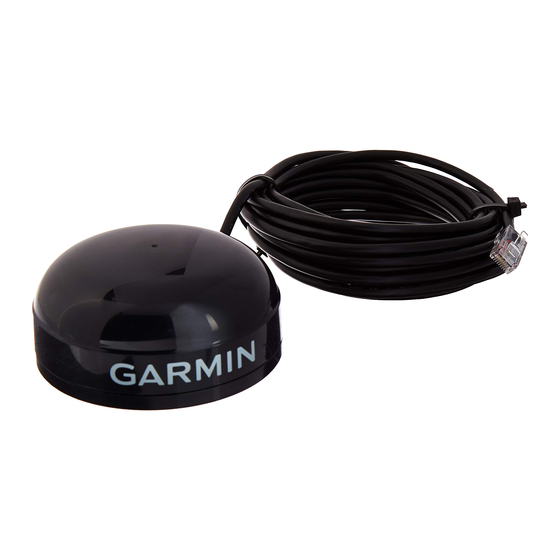APPENDIX C: EPHEMERIS DATA DOWNLOAD (PROGRAMMING EXAMPLE)
Synopsis
This section describes, using an example, how to download ephemeris information from a Garmin 15, 16,
17 or 18 family GPS unit with the exception of the GPS 15-W and the GPS 15-F.
Garmin Binary Format Review
To download the ephemeris data, you must first command the unit to output information in Garmin Binary
Format (Garmin mode) instead of the default NMEA output format. To put the unit in Garmin mode,
connect to the unit using a terminal program and send the following NMEA sentence:
$PGRMO,,G*hh<CR><LF>
The checksum *hh is used for parity checking data and generally is not required in normal PC
environments, but is recommended for use in environments containing high electromagnetic noise. When
used, the parity bytes (hh) are the ASCII representation of the exclusive-or (XOR) sum of all the characters
between the "$" and "*" characters, non-inclusive. Sentences may be truncated by <CR><LF> after any
data field and valid fields up to that point will be acted on by the GPS sensor. See Section
Interface.
The unit will stay in Garmin mode until the next power cycle.
Now that unit is in Garmin binary format, transmitted and received packets are structured as follows:
Byte Description
Packet Delimiter
Packet ID (type)
Data Size
Data bytes
.
.
.
Checksum
Packet Delimiter
End of Packet
The DLE (0x10) is a delimiter byte used in conjunction with the ETX byte to determine beginning and
ending of a packet. However, a 0x10 could appear in the data itself; if this occurs, the byte is escaped with
another DLE byte (sometimes referred to as DLE stuffing). In other words, if a DLE occurs in the data,
another DLE is transmitted immediately after to indicate that it is a data byte and it is not being used as a
delimiter. Note that the size byte of the packet does not count the second DLE byte in an escaped DLE pair
in the data field. Since a DLE that is a part of the data will have a second DLE to escape it, a single DLE
followed by an ETX byte means that the end of a packet has been reached.
In order to interpret these packets properly, one must remove the escaped DLE bytes. This can be achieved
using an algorithm similar to the
190-00228-20
Name
Notes
DLE
0x10
ID
Packet type
SIZE
Number of bytes in data portion(not
including escaped DLEs. See below)
DATA
Not to exceed 256 bytes
.
.
.
.
.
.
CHKSUM
2's complement of the arithmetic
sum of all the bytes from the
Packet ID byte to the last DATA
byte(inclusive) not counting
escaped DLEs. See below
DLE
ETX
Sample C Code
fragment on the previous page.
GPS 16/17 Technical Specifications
Page 29
4 Software
0x10
0x03
Rev. C

